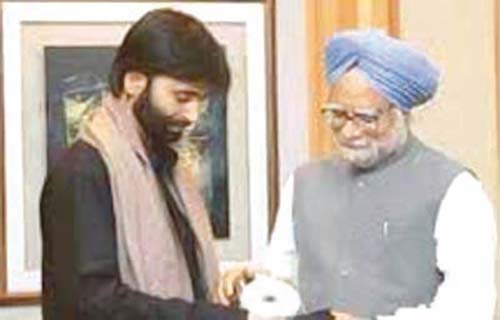
When the group, tasked to recommend measures on how to improve relationship between the central and state governments, did meet, it discussed issues of regional imbalances, democracy, secularism and the rule of law in the state. But it failed to recommend anything.
The group members included Bharatiya Janata Party’s Arun Jaitley; National Conference’s Rahim Rather, Congress leader Tara Chand, , Peoples Democratic Party’s Muzaffar Hussain Beigh and Communist Party of India-Marxist state secretary Mohammad Yusuf Tarigami.
“There was never any consensus among the high-profile members of the group,” said a group member adding, “the ideas were as wide as the confusion in the group.”
Justice Sageer, before his death submitted the report to the chief minister, Omar Abdullah, bypassing every norm. Later, the state government, to overcome the disputes among the members of the committee about the recommendations, set up another committee under Finance Minister, Abdul Rahim Rather but this committee too has till date failed to sort out the differences between the congress and National Conference.
The other four working groups – on strengthening relations across LoC (Line of Control dividing Kashmir between India and Pakistan), confidence building measures across segments of society in the state, economic development of Jammu and Kashmir and ensuring good governance – submitted their recommendations to the prime minister in the third round table conference in New Delhi. “But those recommendations were never implemented in their true sprite,” said a top government official pleading for anonymity.
The government later set up a high-level committee in February 2008 headed by the then union home secretary for the implementation of the recommendations of the four groups. But there has been no movement since then.
It was a historical moment when after 58 years on April 7, 2005 the Prime Minister Dr Manmohan Singh, Congress president Sonia Gandhi and the then chief minister Mufti Mohammad Sayeed flagged off the cross-LoC bus service (Karvaan-e-Aman) between Srinagar and Muzaffarabad. The bus service was meant to facilitate meeting of divided families.
The cross-LoC bus service was resumed after nearly 58 years following an agreement reached between India and Pakistan to allow families, separated since 1947, to meet each other. The 170-km Srinagar-Muzaffarabad road, also known as the Jhelum Valley road, was closed for traffic on October 27, 1947. It was billed as the “mother of all confidence-building measures”.
A day before the launch of the “peace bus” service, suspected militants carried out an attack at Tourist Reception Center (TRC) Srinagar.
After much-hyped inaugural run, the ‘Karvaan-e-Aman’ came under intense media glare as Mirwaiz Umar Farooq, the chairman of his faction of Hurriyat boarded it along with his moderate companions of the separatist camp including Mohammad Yasin Malik, chairman Jammu Kashmir Liberation Front (JKLF).
Eight years down the line, the same moderate Mirwaiz terms the Srinagar-Muzaffrabad bus service as a political show and a mere tool for political propaganda. “Hurriyat had welcomed the bus service believing that it would provide relief to the divided families and people of Kashmir. It has proved to be otherwise and government has just used it for its political show-off,” Mirwaiz said addressing a Friday congregation recently at Jamia Masjid in Srinagar.
Then came the turn of cross LoC trade and it was started between Srinagar and Muzaffarabad in 2008 as a “major milestone” to benefit the traders of divided parts of the state. But due to absence of banking, communication and other facilities, the trade has not achieved the desired target and has got restricted to a symbolic one.
The traders say that despite several promises by both state and central governments that required facilities would be made available for smooth conduct of the trade, important facilities like banking and communication are still missing.
“There is no guarantee of recovery of money if you do not know your trading partner across the LoC, still we are doing business for keeping alive the confidence building measure,” the traders said.
They said the barter system of trade is still in force because the authorities are concerned that the Hawala money would be exchanged from the route. Under such conditions, it becomes difficult for traders from both the sides to judge the exact value of the goods exchanged.















